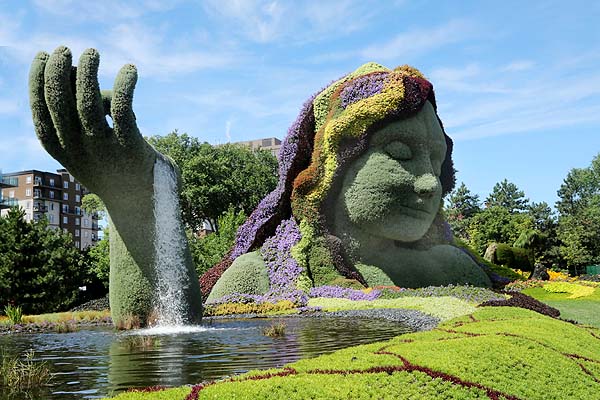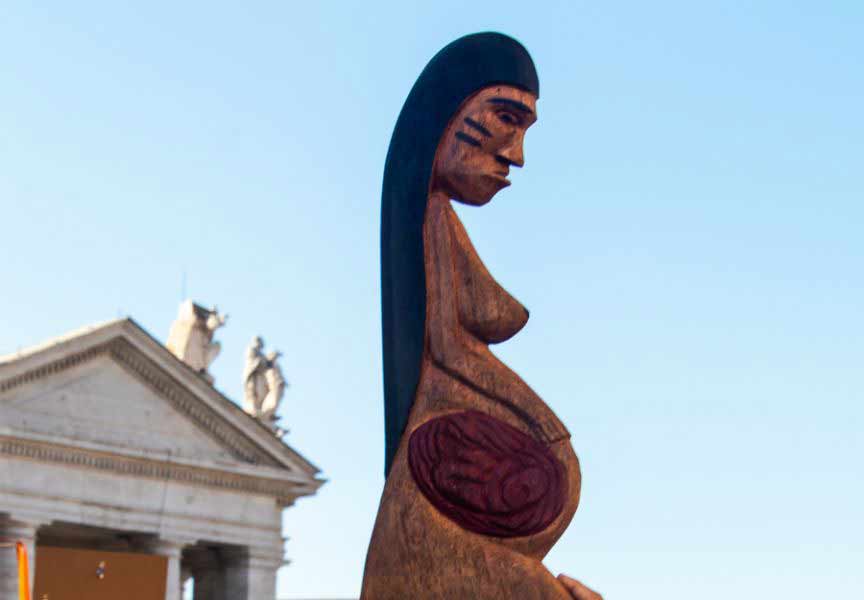 |
| Artemis at Ephesus as the all-nurturing "Mother Nature" |
While we claim as a society to recognize religious freedom, in fact we have a state religion. We call it, incorrectly, “science,” but it is the thing we commonly know as science; and our god, or rather goddess, is Nature.
It is not tolerant of other creeds. Its rituals of worship, things like rules for recycling, or buying electric cars, are mandatory. It is heavily state subsidized; tithing is not optional.
Unlike the Christian God, but like the other pagan gods, Nature is not well disposed towards man. Her temples, the nature preserves, often ban human beings. Mankind becomes, to quote more than one writer, “a cancer on the planet.”
She is clearly and commonly personified, and specifically as feminine. She has all the characteristics familiar from Isis, Artemis, and Gaea, previous nature goddesses. She is aka “Mother Nature” or “Mother Earth.”
 |
| Gaea or "Mother Earth" at the Montreal Botanical Gardens |
The religion also makes no allowance for ethics. Ethics are unnatural; “unscientific.” Instead, we have definite obligations to the goddess, on pain of provoking her wrath and retribution.
The priesthood dresses in distinctive white smocks. At the same time, because the goddess is feminine, mortal women in her image seem to be given unlimited power over life and death. Child sacrifice, common in earlier pagan periods, has returned. There is no more value to human life, after all, than to that of an animal.
The field of psychology/psychiatry is in effect a permanent Inquisition, seeking out heresies.
This is not going well. This has reached its strongest expressions, so far, in Nazism and in Communism; but we would be naïve to think these cannot be bettered in future.
 |
| Pachamama |
But, you might protest, science is simply truth.
So it is; but scientism and nature worship have nothing to do with science.
Or with truth.















